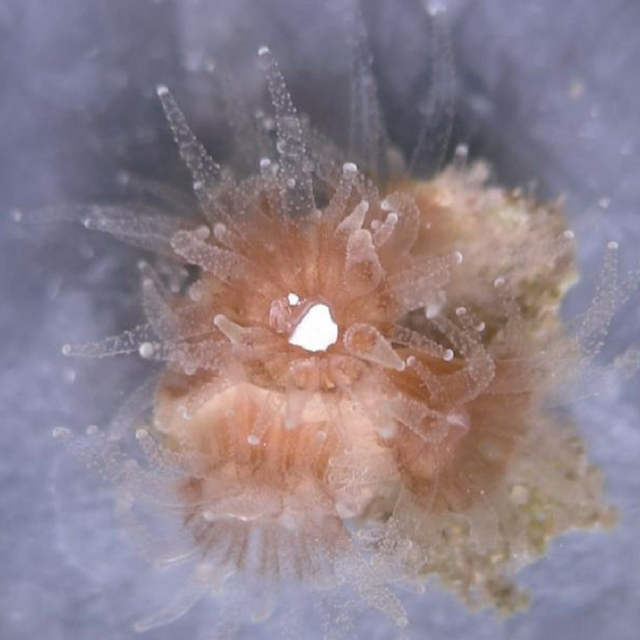 A young coral polyp feasts on a white scrap of plastic.ALEX SEYMOUR, DUKE UNIVERSITYMarine animals will frequently consume scraps of plastic because it visually resembles prey. But why do corals eat plastic when they have no eyes? A new study has found that hard corals–which rely solely on chemosensory cues for feeding–eat plastic because the material itself “tastes” good to them. Further research is needed to determine what ingredient tickles their fancy in particular, and also how this affects them. This study showed that plastic particles often get stuck in the coral’s bodies and can stay there for long periods of time.
A young coral polyp feasts on a white scrap of plastic.ALEX SEYMOUR, DUKE UNIVERSITYMarine animals will frequently consume scraps of plastic because it visually resembles prey. But why do corals eat plastic when they have no eyes? A new study has found that hard corals–which rely solely on chemosensory cues for feeding–eat plastic because the material itself “tastes” good to them. Further research is needed to determine what ingredient tickles their fancy in particular, and also how this affects them. This study showed that plastic particles often get stuck in the coral’s bodies and can stay there for long periods of time.
A.A. Allen et al., “Chemoreception drives plastic consumption in a hard coral,” Marine Pollution Bulletin, 124:198-205, 2017.



















